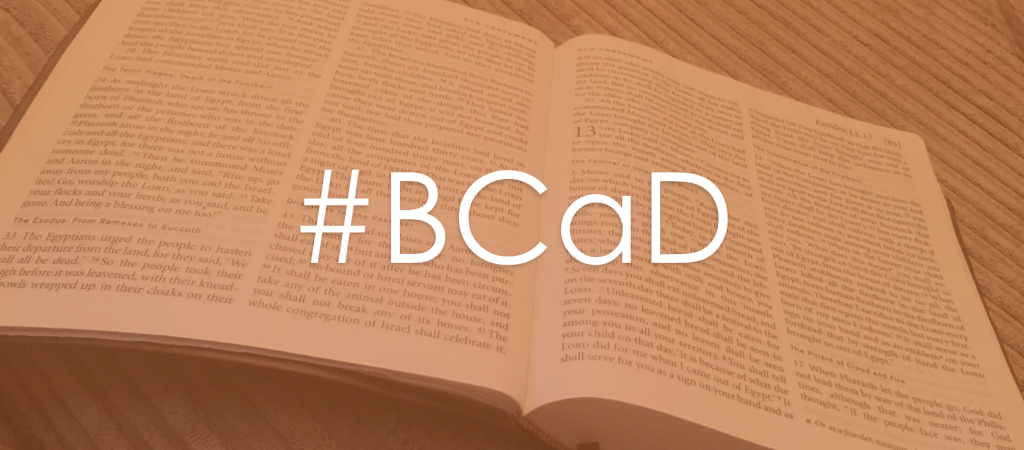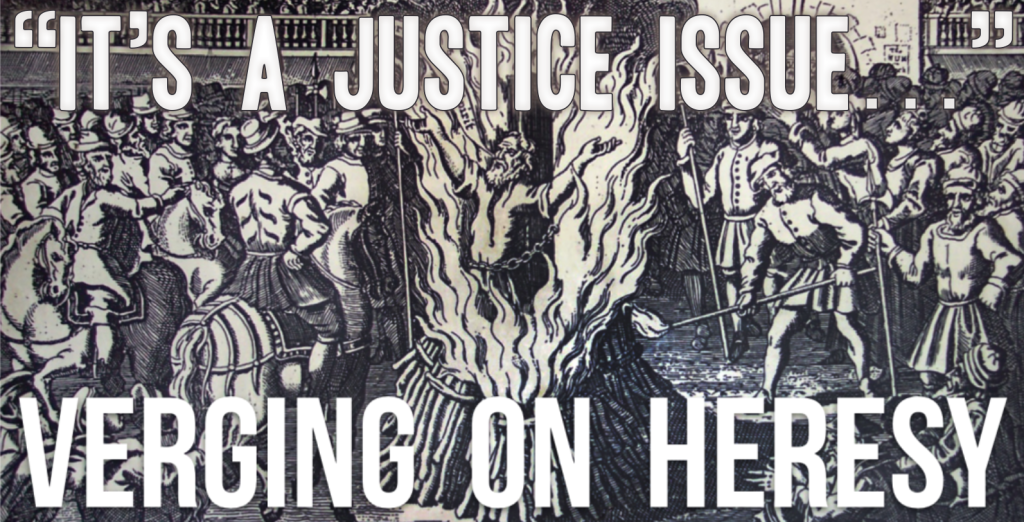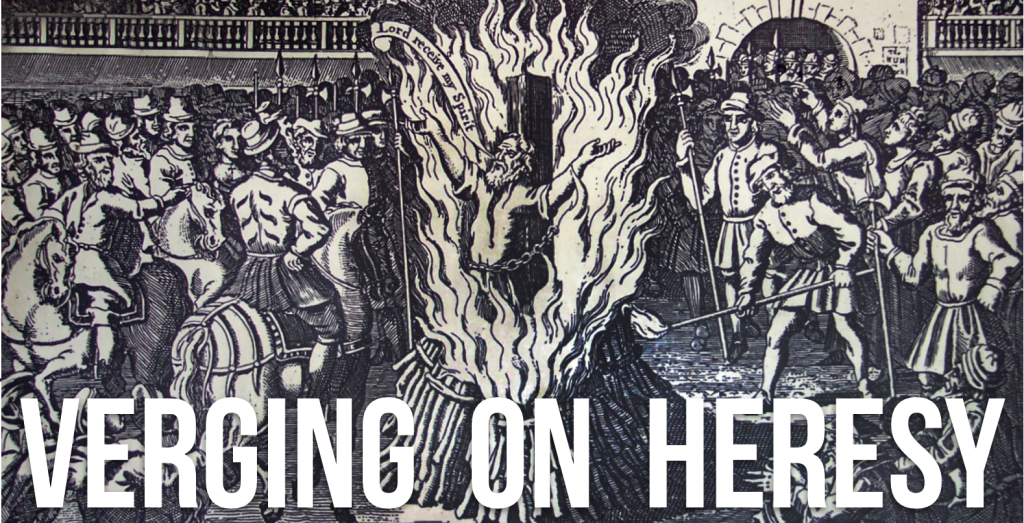
Ok, I’m doing something I’ve been thinking about for a while. A personal project on social media and on this blog which I’ve been planning, and which I’m really excited about. It’s definitely the biggest goal I’ve aimed for and the most ambitious undertaking I’ve set out to achieve on here.
Oh, the suspense…
It’s called #BCaD, and this post is just going to explain what it is, and also tell you how you can get involved if you’d like to.
What is #BCaD?
BCaD stands for ‘Bible Chapter a Day’. And very simply, what I am going to do is read a chapter of the Bible every day and reflect on it in two ways:
- I am going to tweet a summary of the chapter or a brief thought it has sparked each day.
- Every Sunday, I will write a blog post pulling all those tweets together and going just a little deeper, writing a paragraph’s reflection on each chapter.
That’s it. I’ll keep on going till I’m finished with the whole Bible, and it’ll take a bit under three and a half years. I’ve timed it so that if I start on the 2nd November (which I will be!), then I will finish this project the day before I turn 30, and that feels cool. If you want to do the maths and figure out how old I am and when my birthday is, be my guest.
(I want to be clear. I’m not the first to do something like this. I’m not claiming to have come up with a new idea – I saw someone else do something similar and thought ‘I’m going to do that one day!’)
So that’s it. That’s #BCaD. I can’t wait.
Get involved with #BCaD!
I fundamentally believe that the Bible is best explored in community. I’m not one to tell other people when or how to read the Bible, or how much to read or anything like that. But I’ve mentioned this to a few people and they said they might join me.
So, if you’d like to join the #BCaD train, here are some things you can do:
- Read along! I’ll publish the order I’ll be using soon, but we’ll be starting on November 2nd with Genesis, which will keep us going for 7 weeks and by the end of that I’ll have the full plan available to follow along with.
- Tweet/Instagram/Facebook/whatever else. If you’re reading along, or just join for a day or two every now and then, share what God’s been speaking to you through it on all your favourite social networks. Make sure to use the #BCaD hashtag.
- Read my posts. Again, as you follow along, why not read some reflections on what you’re reading.
- Write your own posts. Are you a blogger? Could you be? Why not join in with the project. This isn’t my thing at all!
Drop me a line if you have any other ideas, or if you’re thinking you might join me for this ride!



